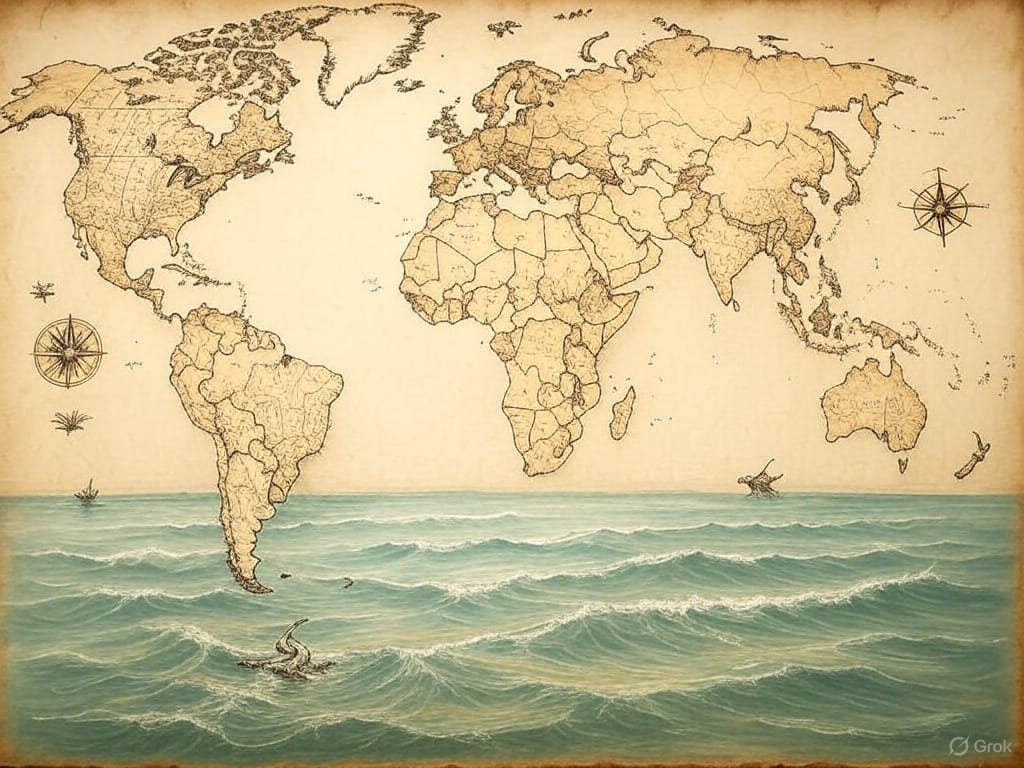The Ghosts of History
From the biblical claims of Israel-Palestine to the imperial echoes of Russia-Ukraine, today’s conflicts reveal how ancient grudges and colonial legacies cast a long, unyielding shadow over the modern world.

History is not a relic but a living force shaping today’s conflicts—geopolitical struggles, ethnic tensions, and territorial disputes. Far from isolated, these disputes echo ancient grudges, colonial legacies, and unresolved wounds. By examining the past, we can understand the roots of modern conflicts and seek paths toward resolution. This article explores two prominent examples: the Israel-Palestine conflict and the Russia-Ukraine war.
The Weight of Ancient Grudges
Grudges endure across generations, woven into cultural identities and national narratives. Historical memory—how events are remembered and retold—fuels modern conflicts. In the 1990s, the Yugoslav wars erupted not just from political failures but from centuries-old rivalries between Serbs, Croats, and Bosniaks, rooted in the Ottoman and Austro-Hungarian eras. The 1389 Battle of Kosovo, a cornerstone of Serbian identity, was invoked to rally nationalists, showing how medieval wounds can ignite modern violence.
Colonial Legacies and the Modern Map
Colonial legacies provide the structural framework for many conflicts. In the 19th and 20th centuries, European powers carved up continents with little regard for ethnic or cultural realities, creating unstable nations. At the 1884 Berlin Conference, Africa was divided into arbitrary colonies, ignoring tribal boundaries. This fueled conflicts like Nigeria’s Biafran War (1967–1970), where tensions between the Igbo and Hausa-Fulani erupted, and Rwanda’s 1994 genocide, worsened by Belgian favoritism toward Tutsis over Hutus. These colonial borders, drawn with ink and ambition, remain fault lines for today’s wars.
Israel-Palestine: A Land Burdened by Time
The Israel-Palestine conflict embodies history’s long shadow. For Jewish Israelis, the land is an ancestral homeland, a refuge after millennia of persecution, including the Holocaust. For Palestinians, it’s a site of deep-rooted history disrupted by the 1948 Nakba, when over 700,000 were displaced during Israel’s founding. The region’s contested past—from Canaanites to Ottomans—sets the stage, but the British Mandate (1920–1948) intensified tensions with conflicting promises: the 1917 Balfour Declaration supporting a Jewish homeland and the 1915 McMahon-Hussein Correspondence implying Arab independence. Today’s battles over settlements and Jerusalem reflect these irreconcilable narratives, where every stone carries a claim.
Russia-Ukraine: Imperial Echoes and National Identity
The Russia-Ukraine war, escalating in 2022, reflects imperial echoes. To Russia’s leadership, Ukraine is part of a shared historical sphere rooted in the Kievan Rus’ (9th–13th centuries), a medieval state both nations claim as their origin. Russian narratives frame Ukraine’s independence as a historical error. Yet Ukraine’s identity, forged through resistance against the Russian Empire and Soviet oppression—including the 1932–33 Holodomor famine, which killed millions—rejects this view. The 2014 Crimea annexation and 2022 invasion revive these tensions, with Ukrainians fighting for their historical narrative.
Why History Matters Now
History is a lens for understanding today’s world. Ancient grudges and colonial legacies explain why peace eludes conflicts like Israel-Palestine and Russia-Ukraine. Some may argue economics or politics drive conflicts, but these often build on historical foundations. By tracing these threads, we gain insight and empathy for those entangled in history’s web.
Breaking the Cycle
Can we escape history’s grip? Reconciliation requires confronting past injustices. South Africa’s Truth and Reconciliation Commission (1995–1998) addressed apartheid’s wounds through public testimony, though challenges remain. In Northern Ireland, the 1998 Good Friday Agreement reduced violence, yet tensions persist. For Israel-Palestine and Russia-Ukraine, steps like mutual historical education or grassroots dialogue could bridge divides. History shows both the difficulty and possibility of overcoming entrenched conflicts.
Living with the Ghosts
History’s ghosts linger in our borders, stories, and wars. Conflicts like Israel-Palestine and Russia-Ukraine are continuations of ancient grudges and colonial scars. To move forward, we must listen to these ghosts—not to appease them, but to understand their demands. By facing the past, we can forge paths toward reconciliation and peace.





